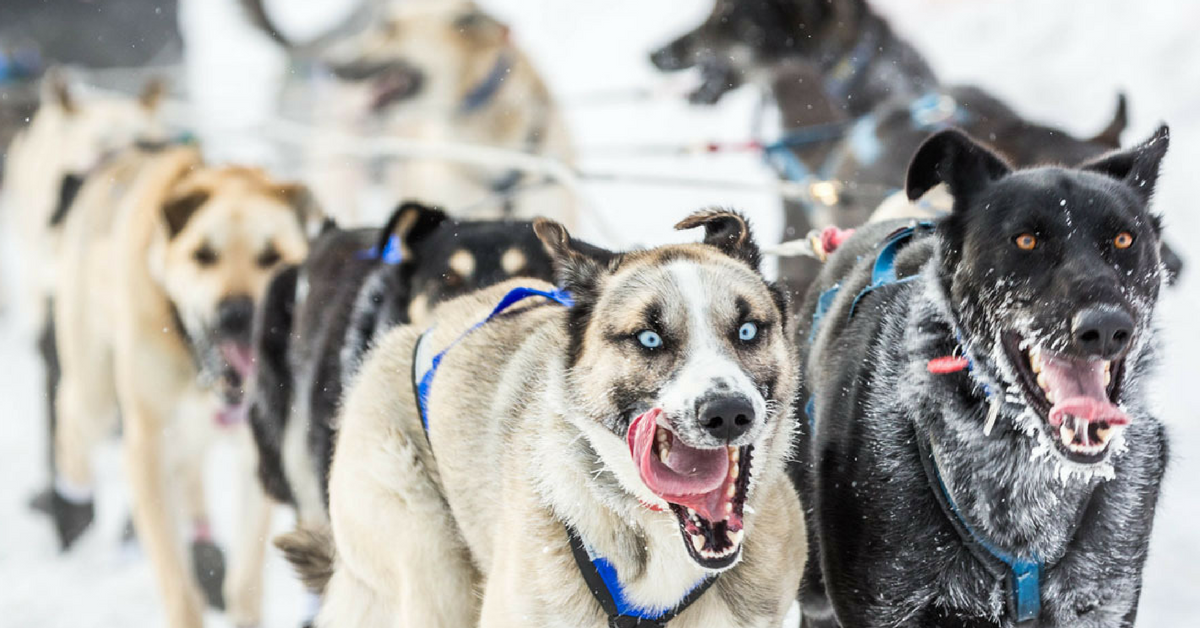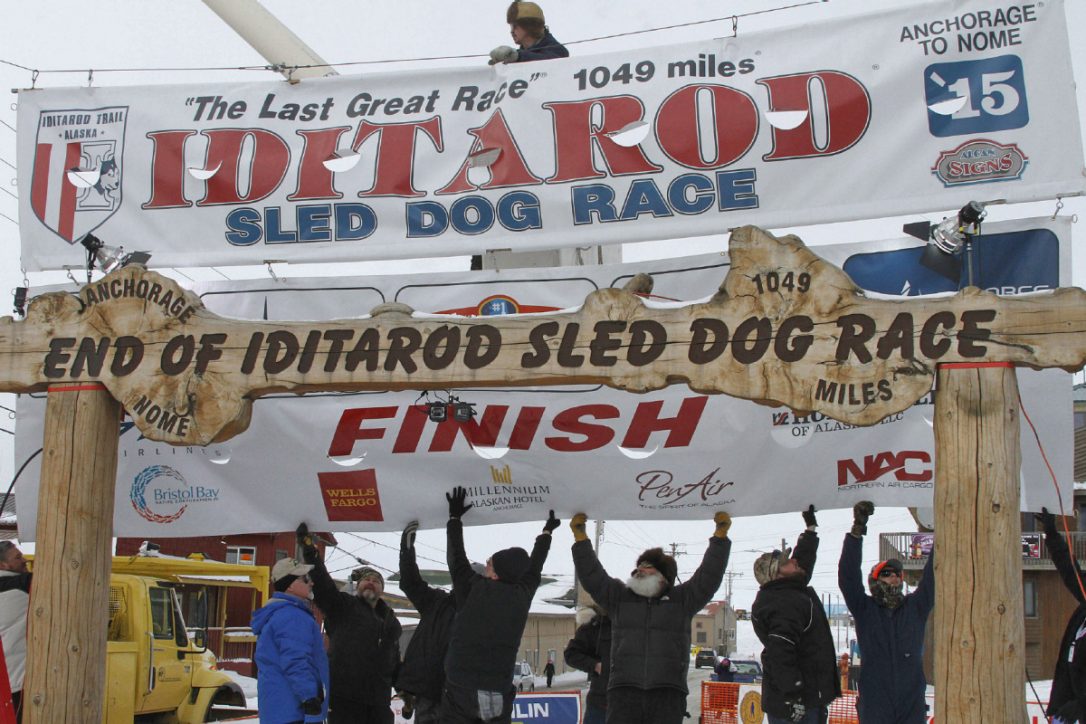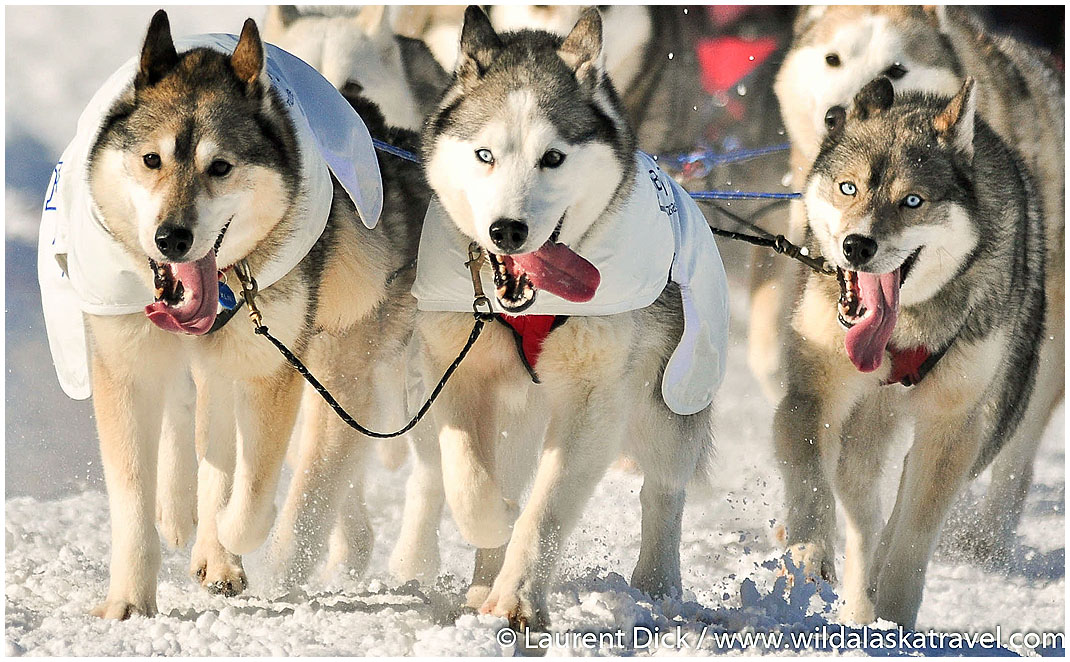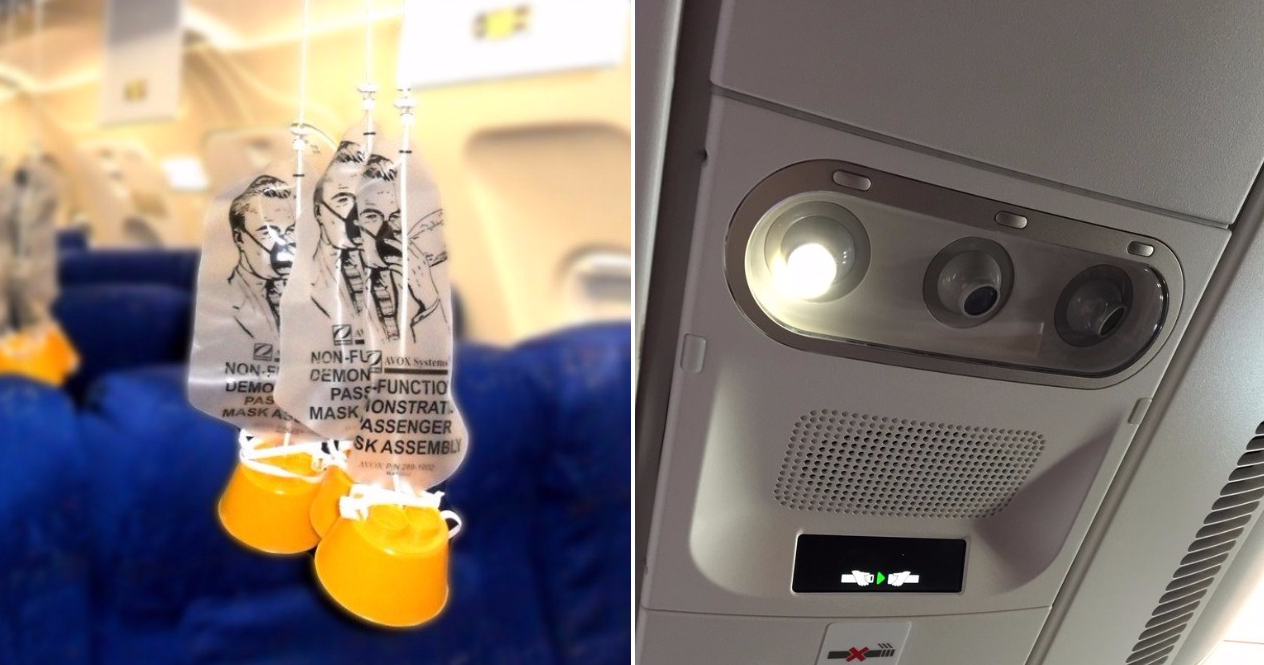A team of canines have tested positive for opioids during the world's most famous dog sled race.
The Iditarod Trail Sled Dog Race, a long-distance race annually run in Alaska from Settler's Bay to Nome, saw several high-performance animals doped up on opioid pain reliever, Tramadol.
In a statement released on Oct. 18, the race's Board of Directors said the team was tested six hours after finishing the nearly 1,000-mile race in March.
It's estimated the drug could have been administered between 15 hours before the test and right before it.
Officials would not release the identity of the dog doping musher based on the advice of an attorney and the unlikelihood race organizers could prove the owner had intentionally administered the drug.
The Iditarod first began testing canines for illegal substances in 1994. Dogs on all teams are subject to random drug tests between pre-race examinations and also along the race trail.
There had been no problems, until now.
In the race's 44-year history, Burmeister said this is the first time any of the canines have tested positive for prohibited drugs.
"I just hope that people look at the big picture and realize that mushers out there are not doping their dogs," he said. "This is an isolated incident."
Burmeister said but only the first 20 teams to reach the finish line face mandatory testing following the race.
Under the 2017 rules for the Iditarod, race officials were faced with the responsibility to prove a musher intended their canines to ingest any banned substances.
However, as a result of the positive drug results, the board revised the rules, holding the dog owners accountable for any positive tests in future races unless they can prove the results occurred outside their control.
In a statement to Alaska Dispatch News, Iditarod spokesman Chas St. George said the musher will be allowed to participate in next year's race and will not face any disciplinary actions.
Burmeister said all of the contenders will appear guilty as long as the affected team remained unknown.
"It's not a good situation," he said. "I'm hoping that we can turn a positive light on it and the musher steps forward."



